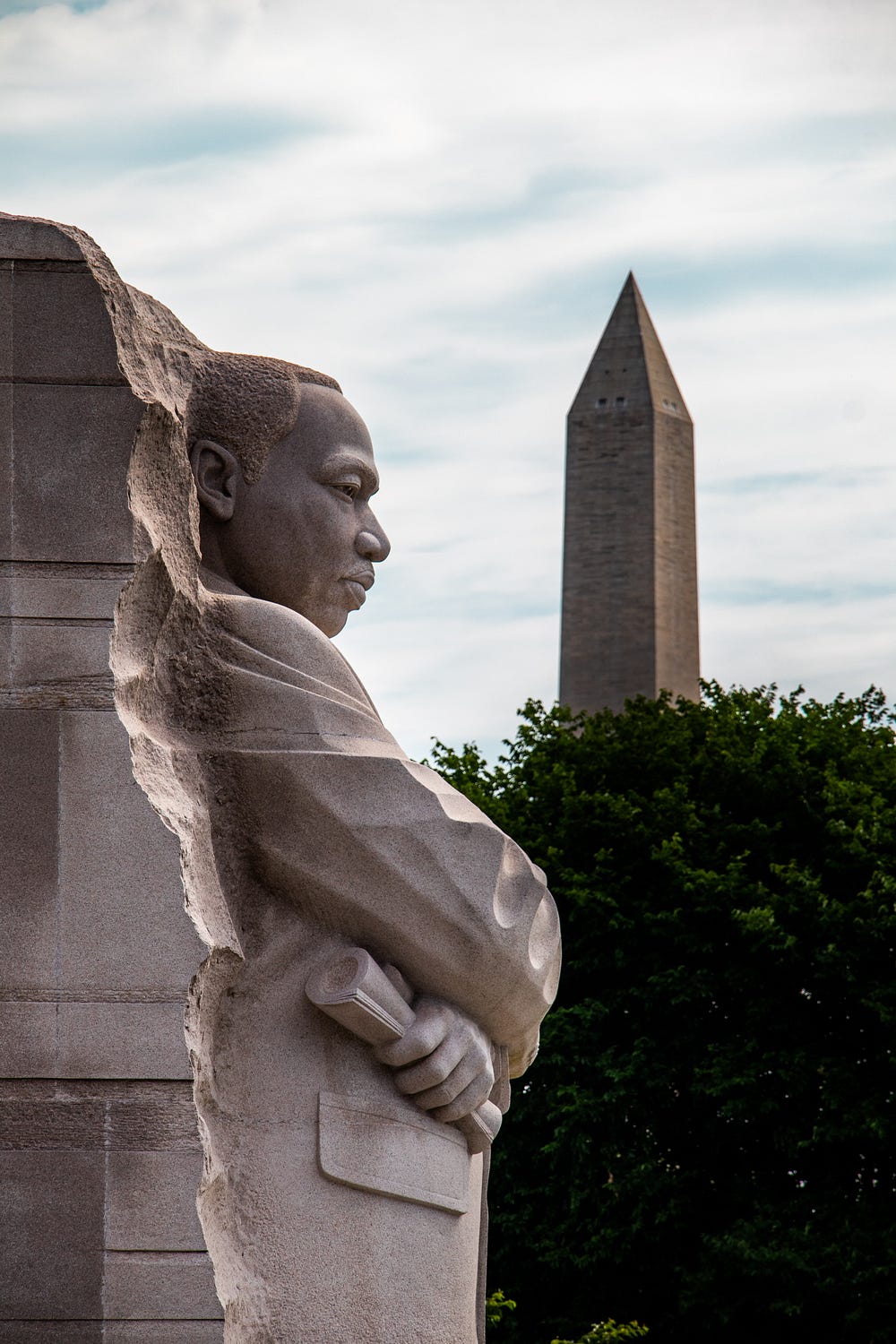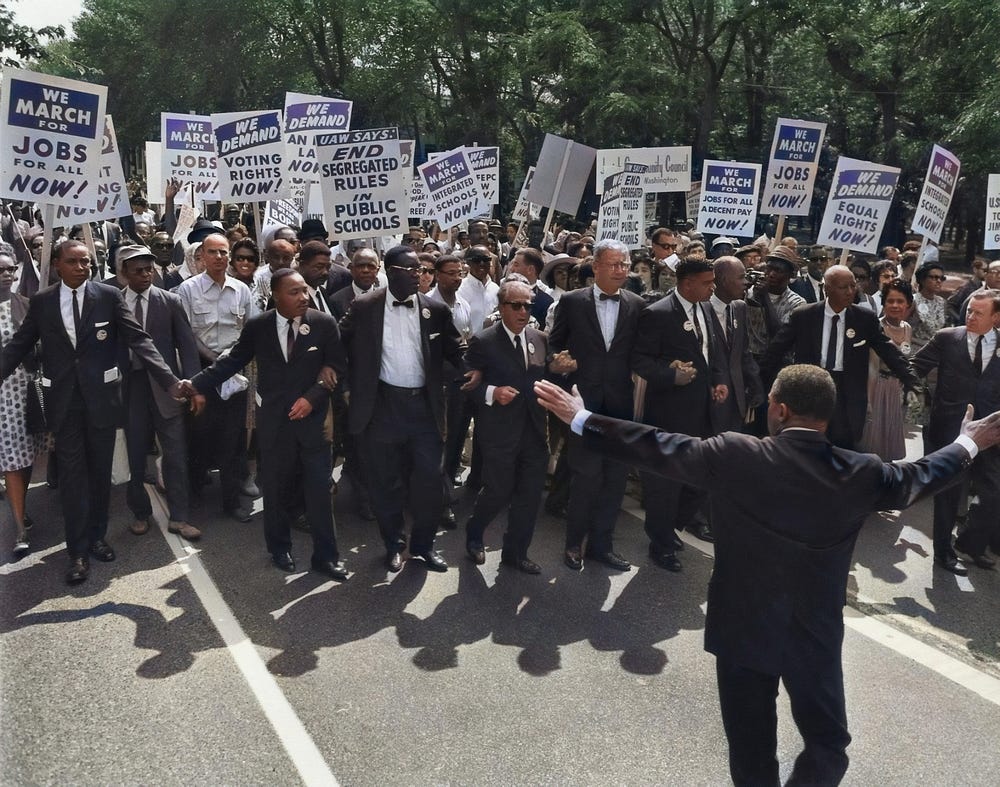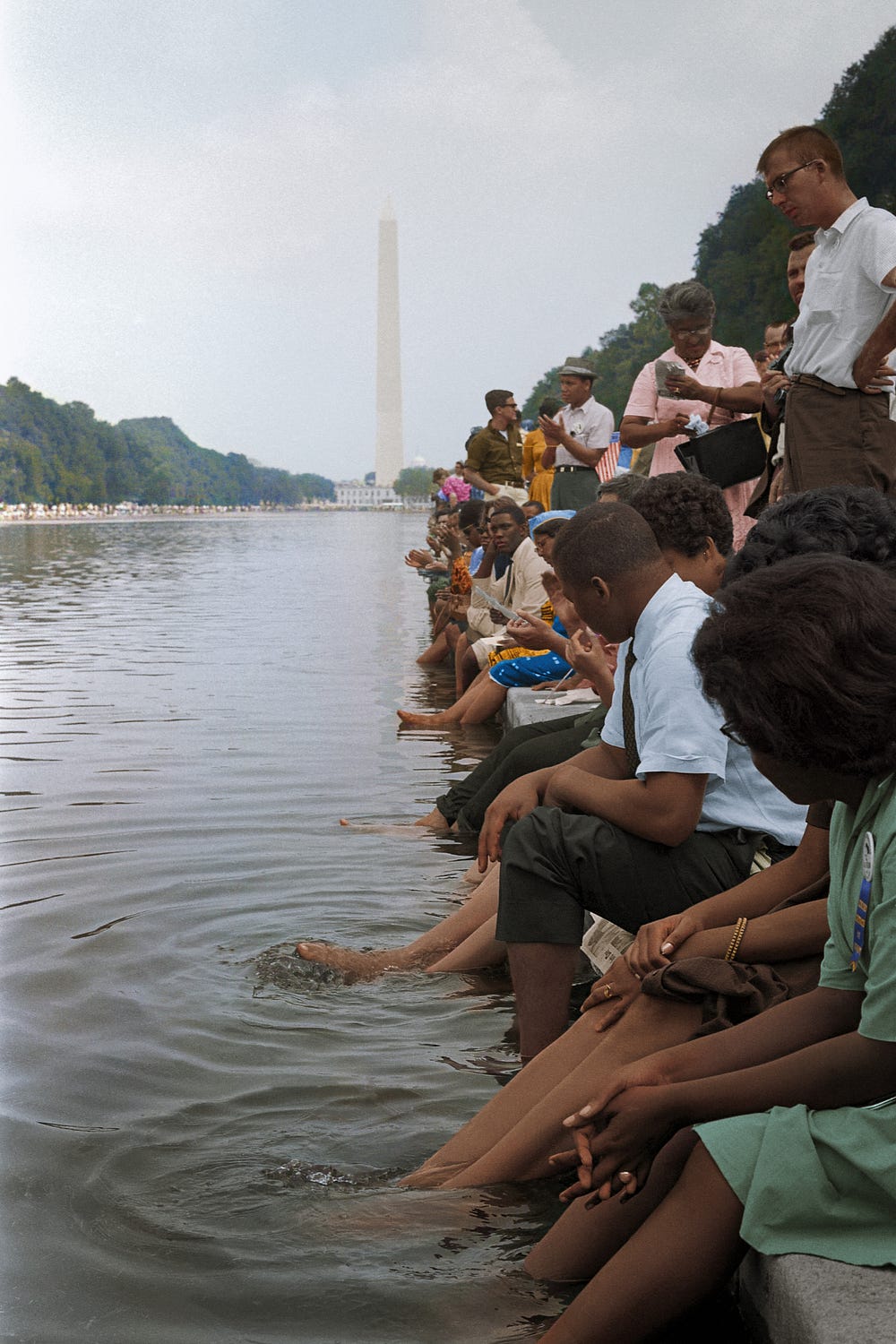Dr. King Led SCLC, Not the NAACP

Recently, Senator Ted Cruz (Republican), Texas, decided to chime in on the travel advisory issued by the National Association for the Advancement of Colored People (NAACP). He did so in a tweet that read in part:
“This is bizarre. And utterly dishonest. In the 1950s & 1960s, the NAACP did extraordinarily well in helping lead the civil rights movement. Today, Dr. King would be ashamed of how profoundly they’ve lost their way.”
Cruz is correct about the extraordinary work done by the NAACP in the 1950s and 1960s. The other stem of his posit assumes or presupposes that Rev. Dr. Martin Luther King, Jr. worked with the NAACP.
He did not.
In 1957, following the successful Montgomery Bus Boycott. Dr. King organized the Southern Christian Leadership Conference (SCLC) and waged a campaign of direct non-violent action against segregation and, correspondingly, for the civil rights of Black people.

King and his compatriots were in the streets being beaten by police and private White citizens, going to jail, and marching wherever he could garner attention to his cause of justice and equality of Black people in America.
At the same time, the NAACP worked through the courts to bring about case law that would bring equity and equality to Black Americans. Often lawyers from the NAACP would defend the SCLC marchers, getting them out of jail and defending them against unfair prosecutions.
Sixty years later, White politicians, who argue against wokeness, confuse the history of how Black Americans defeated Jim Crow. The NAACP was a critic of the tactics undertaken by Dr. King and the Southern Christian Leadership Conference. Their president Roy Wilkins publicly criticized Dr. King’s stratagems when White leaders called King “an outside agitator.” Wilkins did not want to be labeled “an outside agitator.” Wilkins did not see agitation in the streets as a practical solution to the “Negro problem.” King did. He brought them along, kicking and screaming.

During the civil rights era, it was King and SCLC that called for boycotts. NAACP lawyers would defend them when the activists were accused of breaking the law by denying a business opportunity to a White merchant or corporation whose policies discriminated against Black Americans. Let’s not get it twisted in the rush to cover up the history of Black Americans.
Then there is the matter of Amira Castilla, writing in The Root, who follows Cruz’s misinformation about Dr. King’s work by mixing the NAACP’s work with that of King.:
“Dr. King worked with the NAACP in the 1960s to help organize sit-ins in public places and other non-violent protests against Jim Crow laws.”
Castilla writes and provides a hyperlink to the NAACP website that tells King’s story from the NAACP’s viewpoint.
But what does Castilla know?
She probably did not step one foot into the 20th century. But Cruz is old enough to know better. He wants the Black struggle for justice and equality to be monolithic because he can lump all Black people and organizations in the same bag and summarily dismiss them in one fell swoop.
Castilla must make better use of her critical thinking skills. The “Sit-In” movement was started when King was a student at Morehouse College by Rev. C. T. Vivian in Peoria, Illinois, in the early 1940s. When Vivian became a publisher at the Baptist Publishing House in Nashville, Tennessee, in the early 1960s, he brought the Sit-In concept with him and, together with Diane Nash and James Lawson, taught Black communities throughout the country how to desegregate lunch counters.
In 1963 following the bombing of the 16th Street Baptist Church in Birmingham, Alabama, Dr. King wrote Rev. Vivian and asked him to join SCLC and direct the Birmingham campaign. Vivian joined SCLC, and after Birmingham was desegregated, Vivian stayed on as Director of Affiliate Chapters.

The Director of Affiliate Chapters was a critical position because, unlike other organizations, SCLC did not have individual memberships. The organization served as an umbrella organization for civil rights organizations at the local level. By coordinating the activities of these local groups, Vivian filled the Washington Mall on August 28, 1963. The rest, as they say, is history.
National organizations like the Urban League and the NAACP did not come under the SCLC umbrella. These organizations competed with Dr. King for media attention, bringing fundraising opportunities.

Meanwhile, the NAACP is fundraising online with their narrative of how Dr. King worked with them during the civil rights era. Based on the NAACP website, one would think that Dr. King’s organization was the NAACP. The Southern Christian Leadership Conference has no comparable online website presence to dispute the NAACP’s claim.
The bottom line is that Cruz got it wrong; the kind of activities the NAACP is calling for in Florida to combat the draconian policies of Governor Ron DeSantis is precisely the kind of activism Dr. King pushed and prodded the NAACP leaders to do in his day.
This son of the 20th century does not doubt that Dr. King would applaud the 21st-century efforts of the National Association for the Advancement of Colored People. Cruz, Dr. King is smiling and saying, “Bravo, bravo, bravo, what took you so long.”
What Dr. King would find disgusting is the sheer absence of a national debate on the three evils of society: “militarism, poverty, racism.”
Harold Michael Harvey is the Living Now 2020 Bronze Medal winner for his memoir Freaknik Lawyer: A Memoir on the Craft of Resistance. He is the author of a book on Negro Leagues Baseball, The Duke of 18th & Vine: Bob Kendrick Pitches Negro Leagues Baseball. He writes feature stories for Black College Nines. Com. Harvey is a member of the Collegiate Baseball Writers Association, HBCU and PRO Sports Media Association, and the Legends Committee for the National College Baseball Hall of Fame. Harvey is an engaging speaker. Contact Harvey at hmharvey@haroldmichaelharvey.com.
Thank you for the correction in the attempt by the man from Texas to speak without the facts, in context and experience. Great piece. Write on!
Thanks for sharing your thoughts on this subject. If we who know remain silent, our story will be written out of history.